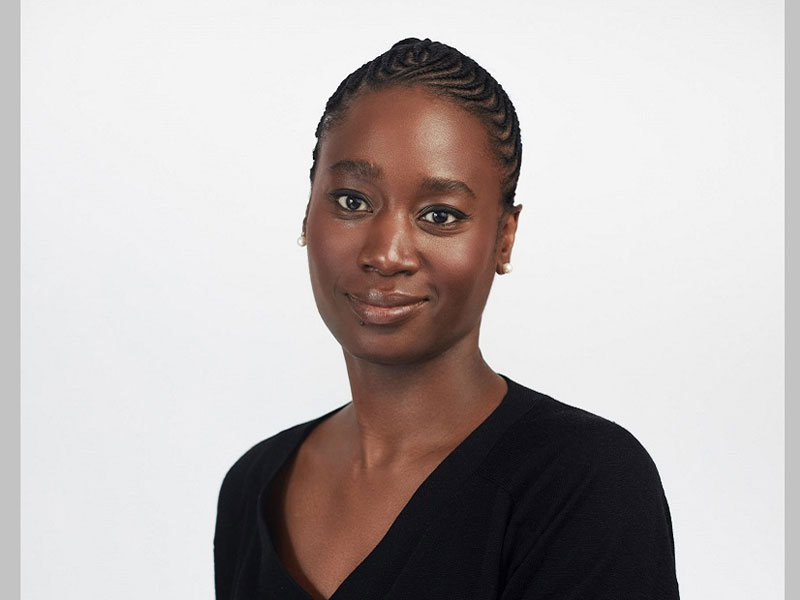White Castle to deploy voice-enabled digital signage in US
SOURCE: HTTPS://WWW.VERDICTFOODSERVICE.COM/
OCT 04, 2023
This Nigerian-American tech genius has built speech recognition software for African languages ABU MUBARIK
SOURCE: FACE2FACEAFRICA.COM
OCT 02, 2021

Abake Adenle. Photo credit: Techpoint Africa
Abake Adenle is a Nigerian-American entrepreneur and the developer of voice recognition and speech synthesis software for African languages. At the time she founded her startup, there was no known player in the voice recognition and speech synthesis software industry that focused on African languages.
Growing up, Adenle wanted to be a university professor but she started her career in the field of finance, working at Morgan Stanley as a quantitative strategist for eight years. “My role was to design and develop trading strategies for institutional investors. And I did that for about eight years,” she told Techpoint Africa.
While at Morgan Stanley, Adenle developed an app for learning the Yuroba language called Speak Yoruba App. According to her, she was inspired to develop the app after seeing her niece and nephew use a mobile application to learn how to speak English.
“And it ended up doing well in the app store,” she said. “I received lots of requests from people asking me to make a version of the app for the African language that they spoke, which was nice and was something I thought I could go into. But I had a job where I was working from 8 am to 11 pm, and it wasn’t realistic to take on at that time.”
Eventually, she quit her job in finance after eight years to focus on her voice recognition app. According to her, the move was motivated by her desire to own her time and enjoy her intellectual freedom.
“I like the idea of owning my time,” she told Techpoint Africa. “I also enjoy intellectual freedom. I’m working on something I want to work on,” she stressed, “not because I’ve been told to work on it, but because I actually enjoy working on it. This is something I value.”
At the time of venturing into the voice recognition space in 2017, it was relatively an untapped area and full of uncertainty. But she was unperturbed. While developing her app, Adenle was consulting in the finance space, in addition to exploring for funding her startup.
“It was for me to develop voice recognition and speech synthesis along with an implementation of a product with two African languages. So, I developed a Beta One for Yoruba and Swahili,” she said.
“We developed a male Swahili voice, and three female Yoruba voices, one of which was based on my voice speaking Yoruba. Also, we developed our core voice recognition model along with a couple of variants that were content-specific voice recognition models for Yoruba and Swahili.”
It should be known that speech recognition is the underlying technology behind Siri and Alexa.
While Adenle’s business proposal was laudable, many venture capitalists were unwilling to invest so she sent a business proposal to Innovate UK, and secured $500,000 in seed funding. “As of now, even though we’re still in private beta, we still have the broadest native African language coverage,” she said.
The tech entrepreneur was born in the U.S. to Nigerian parents. However, she spent the first six years of her life in Nigeria before going back to the U.S. and subsequently returned for her secondary education.
She continued to the U.S. where she obtained a degree in electrical engineering at Morgan State University, Maryland. She also pursued a Ph.D. program in Signal Processing with a focus on Bayesian Inference from Cambridge University.
Today, she is the founder/chief executive officer of ajala, a London-based start-up which builds enterprise speech technologies for low-resourced languages, with a focus on African languages. Adenle sees her startup as one of her high points. For her, developing something innovative like the app she did is fulfilling.
In July, Women in Voice (WIV), a U.S.-based non-profit, awarded its Diversity, Equity, and Inclusion (DEI) in voice award to Adenle. The award celebrates and amplifies women and gender diversity in voice technology. The Nigerian-American financial analyst was recognized for her outstanding contributions to “making African languages accessible to voice solutions”.
LATEST NEWS
Artificial Intelligence
Eerily realistic: Microsoft’s new AI model makes images talk, sing
APR 20, 2024
WHAT'S TRENDING


Data Science
5 Imaginative Data Science Projects That Can Make Your Portfolio Stand Out
OCT 05, 2022

SOURCE: HTTPS://WWW.VERDICTFOODSERVICE.COM/
OCT 04, 2023
SOURCE: HTTPS://RESEARCH.AIMULTIPLE.COM/
JUL 12, 2023
SOURCE: HTTPS://RESEARCH.AIMULTIPLE.COM/
JUL 11, 2023
SOURCE: TECHCRUNCH.COM
OCT 27, 2022
SOURCE: THEHINDU.COM
OCT 16, 2022